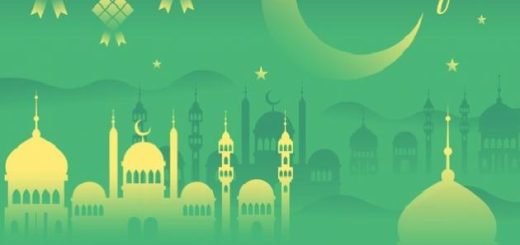Who Made Me? What Is My Purpose?

Who Made Me? What Is My Purpose? The Simple Answer Islam Provides
1. The Starting Point: The Existential Anxiety We All Share
Every single one of us, in a moment of clarity and stillness, asks the same fundamental questions: Why am I here? Who brought me into existence? And where am I going? This anxiety is not an intellectual luxury; it is an inherent part of human nature (Fitra), our innate tendency to search for meaning behind the apparent chaos of life. Modern societies offer partial answers, like “our goal is material success,” or “instant gratification,” but these answers, despite their allure, often leave behind a deep spiritual void. So, where can we find the answer that satisfies the mind and reassures the heart? Islam provides a simple and clear answer, built upon logic and natural harmony.
2. The First Logical Answer: A Creative Maker and a Designed Universe
The first step in answering is identifying the source. Islam presents the concept of Tawhid (Monotheism); the belief that there is one absolute Creator, without partners, who brought this precisely structured universe into being. This addresses the first question: “Who made me?”
- Logic Against Randomness: A sound mind can never accept that this complex system—from the movement of the planets to the composition of a single cell—came into existence by sheer accident or a random explosion of raw materials. It must have an Intelligent Designer who established its laws and purposes. How can we accept that the entire cosmos, with its galaxies and our own intricate cellular and brain structure, exists without an ultimate and superior Creator?
- Perfection as Proof of Creation: The perfection visible everywhere—from the water cycle to the law of gravity that sustains us—is the clearest evidence that this is not random. Islam directs this logical acknowledgment toward Allah (The Creator, The Originator). This affirmation of Tawhid is an emotional and intellectual liberation: freedom from the servitude of illusions or multiple, transient powers, focusing solely on one source of power and mercy.
3. The Second Practical Answer: Stewardship and Building the Earth (The Purpose)
Once the Designer is acknowledged, the next question becomes: “What is my purpose?” Islam answers clearly: Worship and the development of the Earth. Your existential role is one of Khilafa (Stewardship), meaning you are an appointed agent of God tasked with building this planet and utilizing its resources with wisdom and justice.
- Humans Are Not Transient Visitors: You were not created to simply spend a short period of enjoyment and then vanish. You possess a mind for thought, a conscience for discernment, and the ability to plan, all tools not granted to mere fleeting creatures.
- Worship as a Methodology for Development: Islam expands the concept of worship to include every beneficial and perfected action. Your work as an engineer building a bridge, a doctor treating a patient, or a parent raising a virtuous generation—all fall under worship and the development of the Earth if done with sincere intention and excellence. This imbues your entire life with purpose and meaning connected to the Creator.
4. The Final Answer: The Divine Test for the Achievement of Supreme Justice
But why does evil and injustice exist if the Creator is Just? Here lies the core of the human purpose: life is a test and a trial.
- The Postponed Justice (The Afterlife): If life were merely a short existence ending in nothingness, justice would be nullified. How could the oppressor who seized the rights of hundreds be equal to the victim who lived their life patiently? Sound logic and human nature reject such a meaningless conclusion.
- Divine Justice: Islam confirms that this world is a temporary abode of trial, and there is an ultimate abode (the Hereafter) where absolute Divine Justice will be realized without exception. Life is a test of free will: Will you use your freedom, intellect, and capacity for development for good and justice, or for oppression and corruption? This trial justifies the temporary presence of suffering and injustice, as it is necessary for individuals to choose their paths based on their own free will.
Serenity in Clarity
The answer Islam provides is simple yet comprehensive: You are creatively made by one God (Tawhid), your existence has a noble purpose (Stewardship and developing the Earth), and your end is the realization of absolute justice (The Hereafter). This clarity gives life meaning, transforms suffering into a rewarded trial, and makes every day you live a part of a complete and just divine plan.


